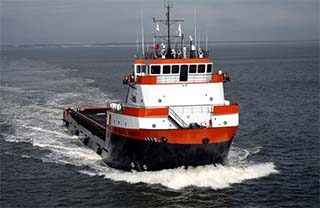The price of oil has hit bottom and is on its way up, but the positive effects of that increase will take a while to filter into the offshore service sector.
“We think we’re fixing the problem. Demand is eating away at the oversupply,” Praveen Narra, an analyst with Raymond James Associates Inc., said today at WorkBoat’s “OSV Outlook for 2016 and Beyond” in Houston. “This is not 1985. Demand is growing.”
Narra said OPEC flooding the oil and gas market was a surprise, but he sees that coming to an end. “If they had more production to put into the market, we think they would have done that. We think those guys are going to be flat to slightly growing.”
Raymond James predicts that the price of oil will begin to rise substantially in the second half of 2016 and move into the $65 to $70 a barrel range in 2017 and 2018. “Our technology is better, and we think oil prices are on their way to improving second half of this year,” said Narra. “We will be undersupplied.”
However, he did caution that while the price of oil will increase, the offshore industry would have to wait to see the change. The U.S. onshore market (fracking) will move in to fill any demand needs, but that portion of the market can’t do the job alone. “The onshore can’t do it by themselves. You will not see the immediate effects right away offshore,” he said. “There will be a longer delay offshore.”
G. Allen Brooks, an analyst with PPHB, a Houston-based oilfield service investment banking firm, was not as optimistic about the price of oil or about the offshore sector. “The market for oil has changed,” he said at the summit. “We need to shrink the fleet. The demand is not there.”
The shallow-water market has bottomed out while the deepwater market has not suffered as much, Richard Sanchez, marine analyst at IHS Energy-Petrodata MarineBase, said. Sanchez, who spoke on the same panel with Brooks, said that the bottom for the deepwater sector is coming. As for the recovery, instead of a bottom followed by an uninterrupted climb up, it will be more of a roller coaster ride.
“The recovery will be more jagged, and uncertainty is bad for the offshore,” he said. “A lot depends on how the oil companies will respond.”
In the long run, there is a major shift coming to the oil industry, driven by more competition and environmental pressure. “Fossil fuels are under attack like never before,” said Brooks.




